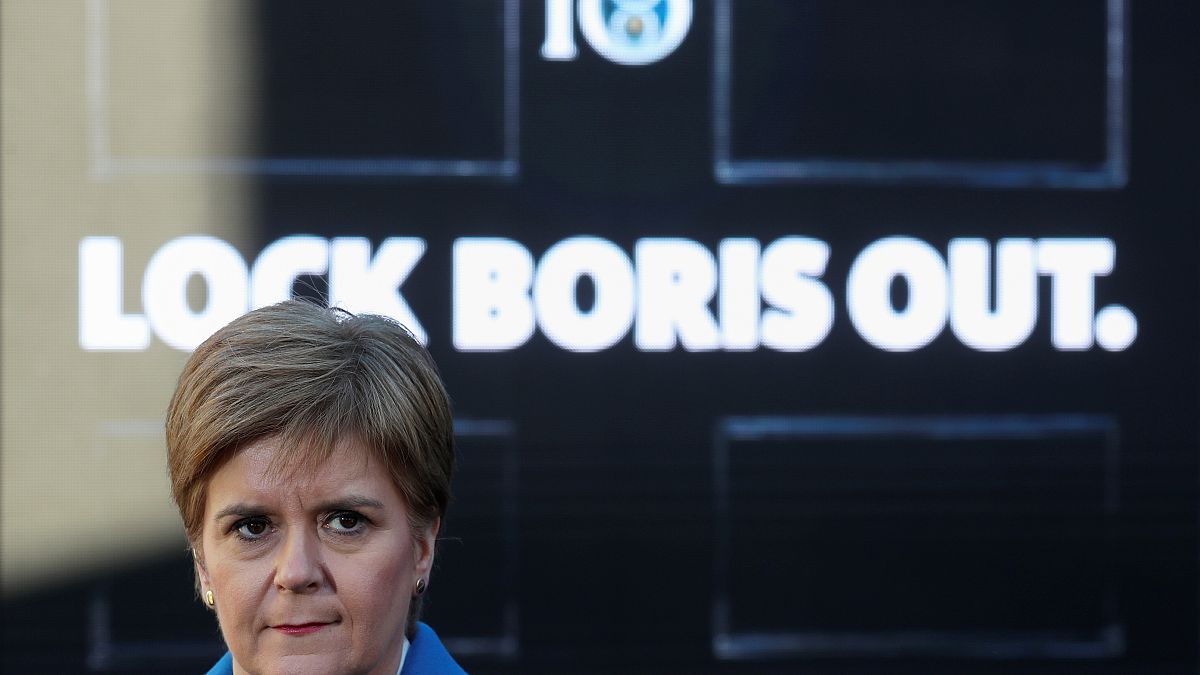There's more than the election at stake for Scotland. This might be the spark that sets the country on a course for a second independence referendum.
As Storm Brendan lashed Glasgow, the leaders of Scotland’s four largest political parties prepared to go head to head with just two days to go until polls open on 12 December.
Scotland is home to several key marginal seats in this election, including in Glasgow. Labour is fighting to keep hold of Glasgow North East, won in 2017 with a majority of just 242 votes.
Meanwhile in the affluent constituency of East Dunbartonshire, Liberal Democrat leader Jo Swinson is defending her majority of just 6,000 from the encroaching Scottish National Party.
The SNP’s key message – as well as securing a rerun of the independence referendum of 2014 – is preventing Brexit, as evidenced by their bright yellow campaign bus that has been touring the country in recent weeks with "Stop Brexit" emblazoned across it.
Similarly, the Conservatives' campaign promise to "Get Brexit Done" has loomed large in its campaigning north of the border.
But in Glasgow, residents told Euronews that for Scottish voters the issue of Brexit is just one of many areas of concern.
“Round here, I don’t think Brexit is a very big issue. I really don’t – I think a lot of people are concerned about the NHS... and the minimum wage. I think those things are really important to people. They realise that Brexit isn’t the be all and end all,” Andrew Quinn, a history student who is deputy editor-in-chief of the Glasgow University newspaper, the Glasgow Guardian, told Euronews.
Lara De Mets, a fourth year politics student at Glasgow University, is originally from Belgium and has a very personal stake in the results of the election, as she intends to study for a masters degree in Scotland. She described the process of applying for settled status as “dehumanising,” particularly having to answer a question about whether she was a terrorist.
But De Mets also feels that not enough focus has been on what will happen after Brexit.
“I think the big problem for the last four years is that politics has been so based on Brexit, people don’t know what is going to happen afterwards. If Boris Johnson gets a majority and passes his Brexit deal and we leave the EU with a deal on the 31st of January, I feel like no one has really though about what’s going to happen beyond that point,” she says.
On the eve of the election, the Scotsman released a poll that suggested that a new vote on Scottish independence – which was rejected by 55.3 per cent to 44.7 per cent in 2014 – would see 52 per cent of the Scottish public voting to leave the union compared to 48 per cent to remain.
But that said, independence is not as divisive an issue in Scotland in 2019 as it once was, Quinn says.
“I remember thinking in 2014: what will people talk about when this is over? And then obviously Brexit happened. I think it doesn’t bear the same relevance as it once did. But there are a lot of people who will vote SNP because they’ve had enough of Westminster, and Boris Johnson is an example of what they don’t want,” he said.
“It could be a very good election tactic for the SNP, but they are cutting out half of the population of the country if they do it.”
You can watch our full interview with Andrew Quinn and Lara De Mets below.
